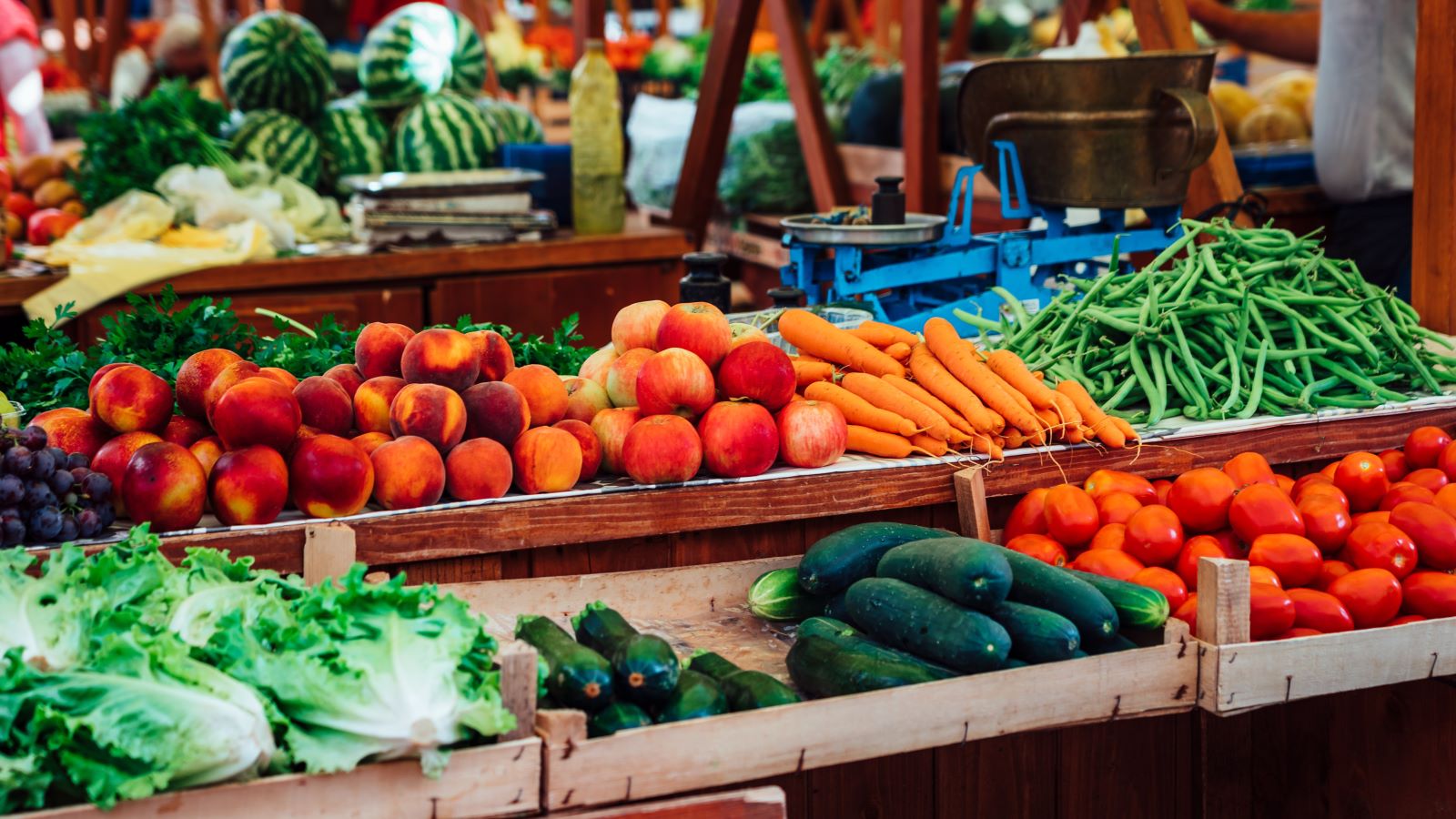You don’t need a vegetable garden to fill your plate with the freshest produce this summer — just stop by your local farmers market.
Even though many markets operate year-round, summer and early fall has the tables overloaded with fruit, vegetables and more, says Melissa Keeney, RDN, clinical nutrition manager with at St. Vincent’s Medical Center.
“There are so many great options to choose from!” she exclaims. “In addition to unique fruits and vegetables, there are often free-range eggs, grass-fed beef, fresh bread and pastries, cheese and local honey. And the best part is that food at a farmers market is usually locally grown.”
Fresh is best.
Fresh fruits and vegetables, Keeney continues, are loaded with important vitamins and minerals. And the options at your local farmers market are even better than what you’ll find in the supermarket because:
- Local equals fresher. Since the produce doesn’t have to travel as far as supermarket produce, fruits and veggies retain their peak nutritional benefits (along with flavor and color)
- Less or no pesticides. Many farmers market vendors use less or no pesticides than large commercial operations. That does mean items may not last as long as those found in a supermarket, Keeney says, but they will taste better.
> 13 Oven-Free Healthy Summer Meals and Snacks
6 tips for getting the most of your farmers market trip
With table after table brimming with fresh, delicious-looking foods for sale, it can be easy to feel overwhelmed when you walk into a farmers market. To help, Keeney suggests the following:
- Get there early. This way you’re sure to get the best pick of produce. Usually, when it’s gone, it’s gone.
- Take a lap around before buying anything. That way you can see what’s available and come up with a game plan for your meals. “Some farmers markets even post on social media which vendors will be there, which can help you plan your shopping,” Keeney says.
- Be open to trying new things. Farmers markets are a great way to try new foods as growers often have varieties you won’t find in the supermarket, Keeney says. “One of my favorite finds last year was a lemon cucumber!” she says, adding, “if you aren’t sure how to cook or use a particular item, ask the farmer. They usually love sharing recipes or preparation methods.”
- Know what’s in season where you live. Depending on where you live and what time of year it is, some produce will be fresher than others. Some favorite summer options in Connecticut, Keeney notes, include:
- Herbs
- Lettuce
- Broccoli
- Peaches
- Corn
- Tomatoes
- Be mindful of food safety while you shop. Ensure that all meat and dairy products are in a cooler on ice. You can also ask farmers when produce was harvested and where the farm is located.
- Use your produce or lose it. Since there are less pesticides and preservatives, your farmers market produce may have a shorter shelf life. “Anticipate that what you get at the farmers market will only last a few days after picking and prioritize use in your meal rotation. This is especially true of berries, herbs, tomatoes and leafy greens,” she suggests. “Another tip is to prep your produce as soon as you get home to make it easier to eat.”



